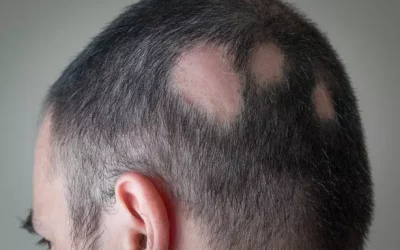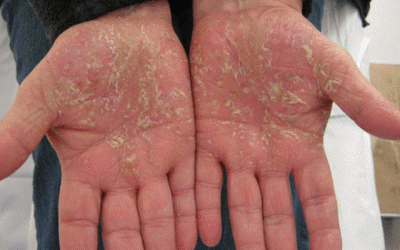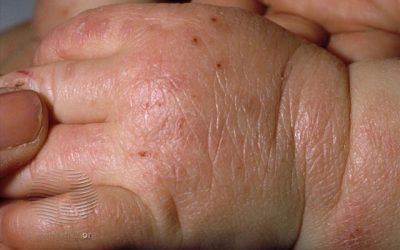Geographic Tongue: Causes, Symptoms, and Treatment Options
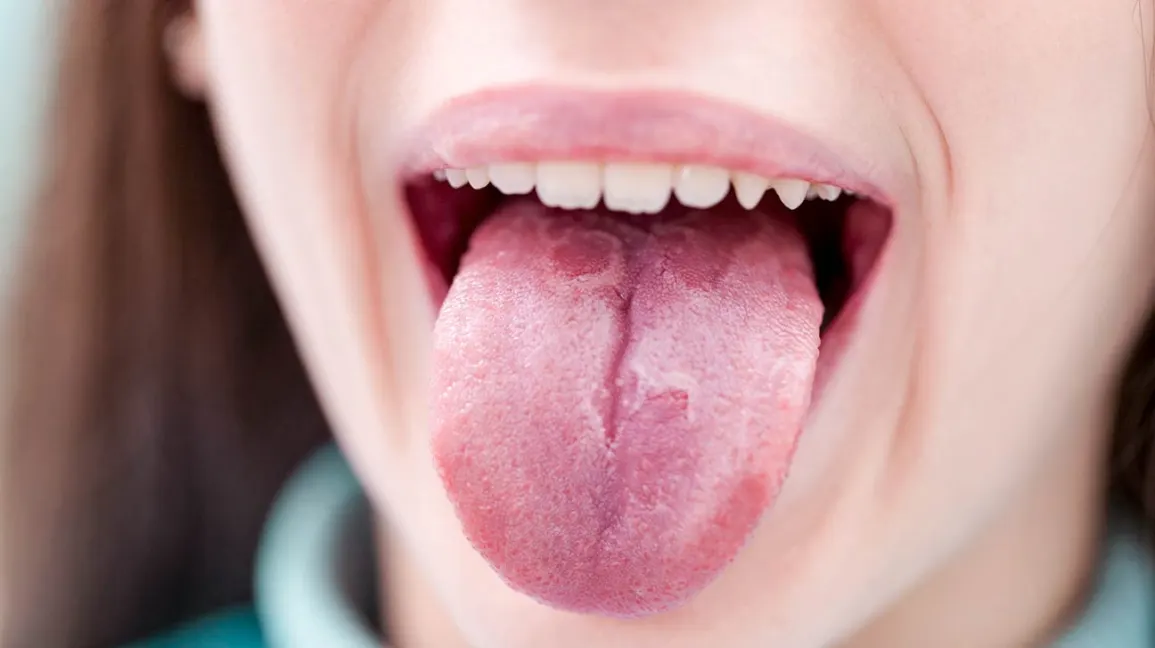
Geographic tongue (also known as benign migratory glossitis) is a benign inflammatory oral disease characterized by the loss of cells of the surface layer of the tongue in its dorsal part.
- Characteristic of 1-3% of the population in the world
- Children are rarely affected, and women are twice as often affected as men
- The exact cause of the disease remains unknown, but it has been observed that it occurs significantly more often in patients who suffer from psoriasis or various allergic and immune system diseases
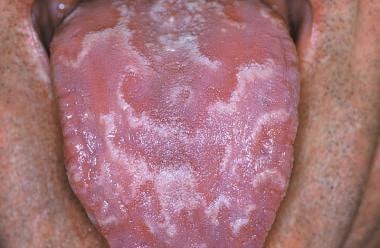
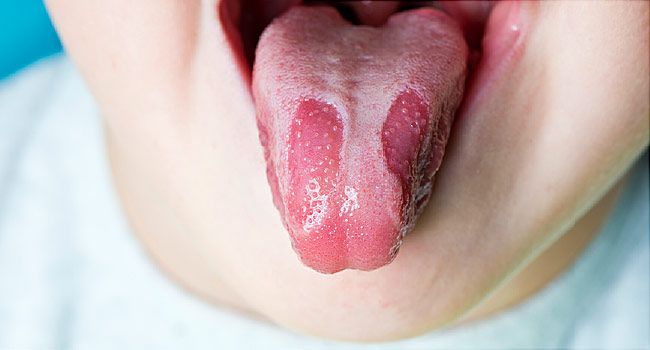
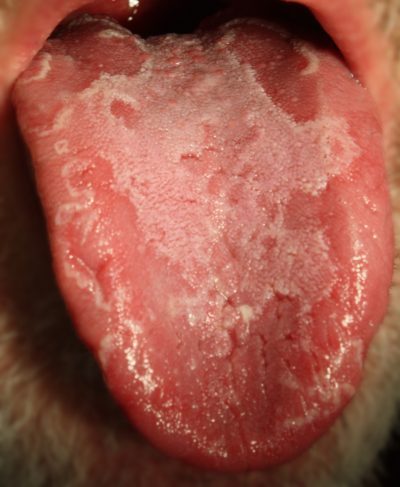
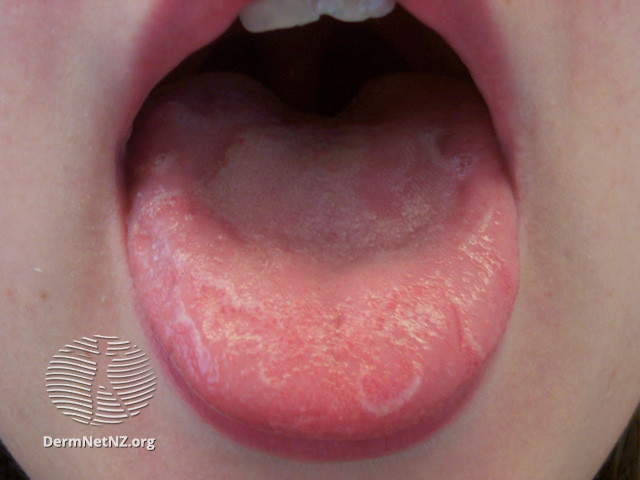
Clinical Signs
Geographic tongue is characterized by:
- irregularly shaped, red, map-like, smooth or swollen spots surrounded by white lines
- can appear suddenly, persist for months or even longer, and later recur
There are often no other obvious symptoms, except that in some cases there may be burning or irritation sensations, especially when eating spicy, hot or sour foods.
Data from the patient’s interview and examination are usually sufficient to establish the diagnosis. If additional laboratory tests are performed, their results are usually normal.
Treatment
There is no specific treatment for geographic tongue. The main measure to reduce the feeling of discomfort is to avoid hot, spicy, acidic food. During the consultation, the doctor can personally draw up a general treatment plan aimed at reducing specific symptoms that are bothering the patient.
The following can be used for this:
- local anesthetics
- topically applied hormones or other drugs
- antihistamine or anesthetic mouthwashes

Focal alopecia
Focal alopecia causes patchy hair loss, often resulting in bald spots on the scalp. Early treatment is key to managing the condition and promoting hair regrowth, helping to restore both hair and confidence.
Palmoplantar pustulosis
Palmoplantar pustulosis is a chronic skin condition that causes painful pustules on the palms and soles. Effective treatment focuses on managing flare-ups, reducing discomfort, and improving skin health through targeted therapies.
Atopic Dermatitis in Children: Causes, Symptoms, and Treatment
Atopic dermatitis in children is a chronic skin condition that causes itchy, inflamed skin. Effective management includes identifying triggers and using treatments to soothe and protect your child’s sensitive skin, ensuring comfort and relief
iDerma
MB iDerma
Fabijoniškių g. 99, Vilnius
+370 670 70822
[email protected]


